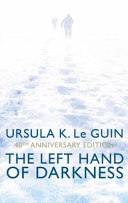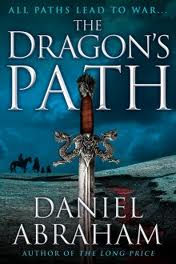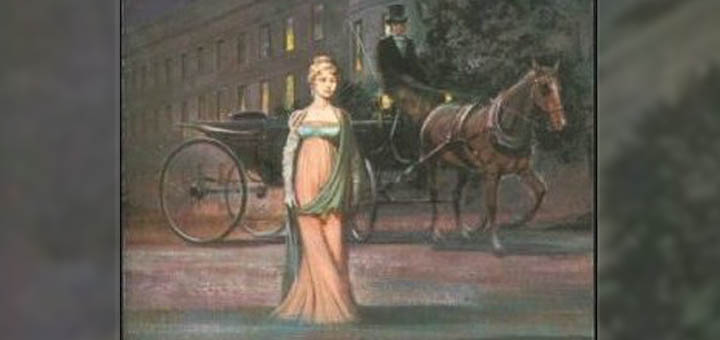Read for the Coursera online course, Carl’s 2012 Science Fiction Experience, the Not Just for Stormtroopers Sci-Fi challenge, & the Gender in Fantasy & Sci-Fi 2012
Genly Ai has been on Gethen for two years. He is the First Mobile, send by the Ekumen to be the first contact between them and a new world. The Ekumen is a federation of planets and worlds, not in a Star Trek way, but in a trade and diplomatic way. They have sent their hidden investigators to Gethen to find out as much about the world as possible. Then it was Ai’s turn, sent as an envoy to openly reveal the existence of other worlds to the Gethenians and to try and bring them into the Ekumen.
Gethen is unique among all the known worlds. Its inhabitants are neither male nor female, but, once every 26 days or so they enter what they call kemmer, they then become male or female, it can very from one kemmer to another, and find another in kemmer and have sex. On occasion they can make a kemmer vow to their partner, this is somewhat similar to marriage, but is not practised by everyone. And it doesn’t seem to be legally recognised. The children take the mother’s name and in the case of kemmerings they know their father. Otherwise he is just their getter and not that important to them.Genly Ai, in a way around the difficulty of pronouns tends to use he when talking about the Gethenians. Although occasionally he will make some disparaging remark and then usually follow it up by calling the individual a female. Not that he is a terrible misogynist, that would be too harsh. He is simply used to the default view of an average person as a man. Therefore the other is female, and so it follows that normal behaviour can be filed away under male, and behaviour that stands out is, well, other and female.
This isn’t just a book about gender and sexism though, there is plenty more going on here. Trust, friendship, and culture clash. Ai and Estravan, his main contact, have huge misunderstandings and distrust based on a lack of understanding and differing conventions. They think they are helping one another when the other doesn’t know what has just happened. But gradually, they come to learn about one another, and realise the extent of these differences.
It is also an adventure story. Maybe not an action and adventure story, but it is a first contact story. That very notion has to be exciting in and of itself, and when you add in a world of constant winter and a trek across the icy wilds… it certainly kept me reading.
I don’t think I liked Ai very much. As Le Guin says of him, he is a stuffy conservative character, but he certainly grows and develops over the course of the book. I was also very much aware that this is a book written over 40 years ago. A lot of the gender problems we had then are still around today, but I think they are a lot more subtle than the book portrays. Possibly they are harder to unearth, and so harder to combat. But that is beside the point. I don’t think that a character like Ai would be written today.
I’m not sure if I will read the other books in Le Guin’s Hainish Cycle. I’d like to, but I don’t know if I loved this enough to make sure and find the time to read them.
Other reviews: SFF Masterworks ; Shelf love ; Books under the skin ; A striped armchair





Excellent review! I know lots of people find this one really old fashioned, but I think it still works well today. The problems it discusses are more subtle, but still present. It's an interesting way of approaching the problem.
But I agree on Ai being hard to like.
Liviania´s last blog post ..A More Diverse Universe Review: The People of Paper
I thought this was quite an interesting book…I struggled a little with it when I read it as a teen, though now I understood the complexities much better. It's still a tough read, though! I've also read The Dispossessed, which is another in the Hainish Cycle. It was pretty much the same way. Deep and thoughtful, but tough going. I may read the rest, but I'm not in a huge rush. :)
Rachel´s last blog post ..The Blind Owl, by Sadegh Hedayat
I think that even le Guin wishes she had written some things slightly differently in this book. She mentions she thinks Ai is a bit too stuffy at times, & the edition I read had a short story st the end with a positive story of kemmering which she has said she would like to have more of in the book, but was a bit shy when she wrote it ;-)
I've been wanting to read Le Guin or a while now, but I'm not sure whether I'm ready to embark on a new series. It does sound pretty good though, the gender issues may be a bit outdated, but are likely to be as interesting to read as 40 years ago?
Hmmm this sounds interesting and really different. Might have to add this one to my list, because it does sound at least semi still relevant!
Amy Reads´s last blog post ..Review: The Hundred Thousand Kingdoms by N.K. Jemisin
This author has been on my radar screen forever it seems and I have still not taken the opportunity to read her. Thank you for reminding me that I need to read some of her work, perhaps this one, and soon!
Kathleen´s last blog post ..Review: The Unlikely Pilgrimage of Harold Fry by Rachel Joyce